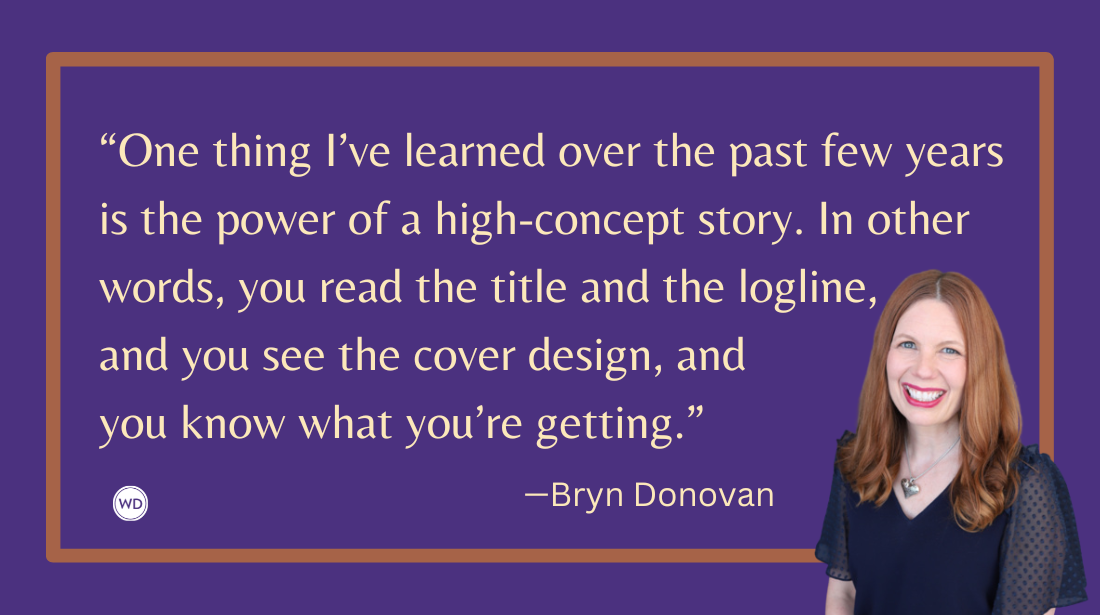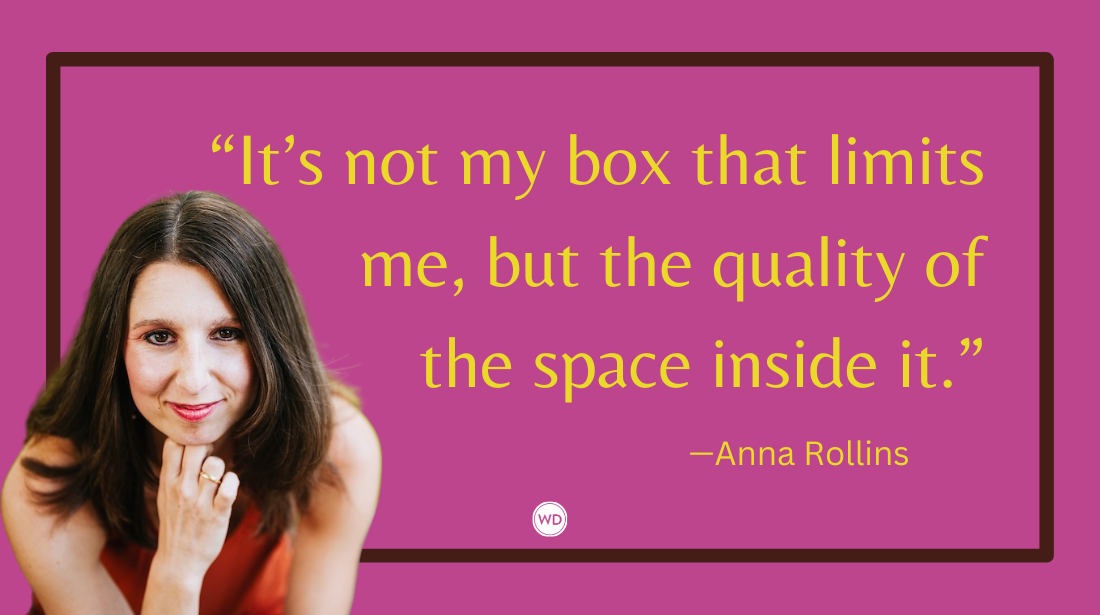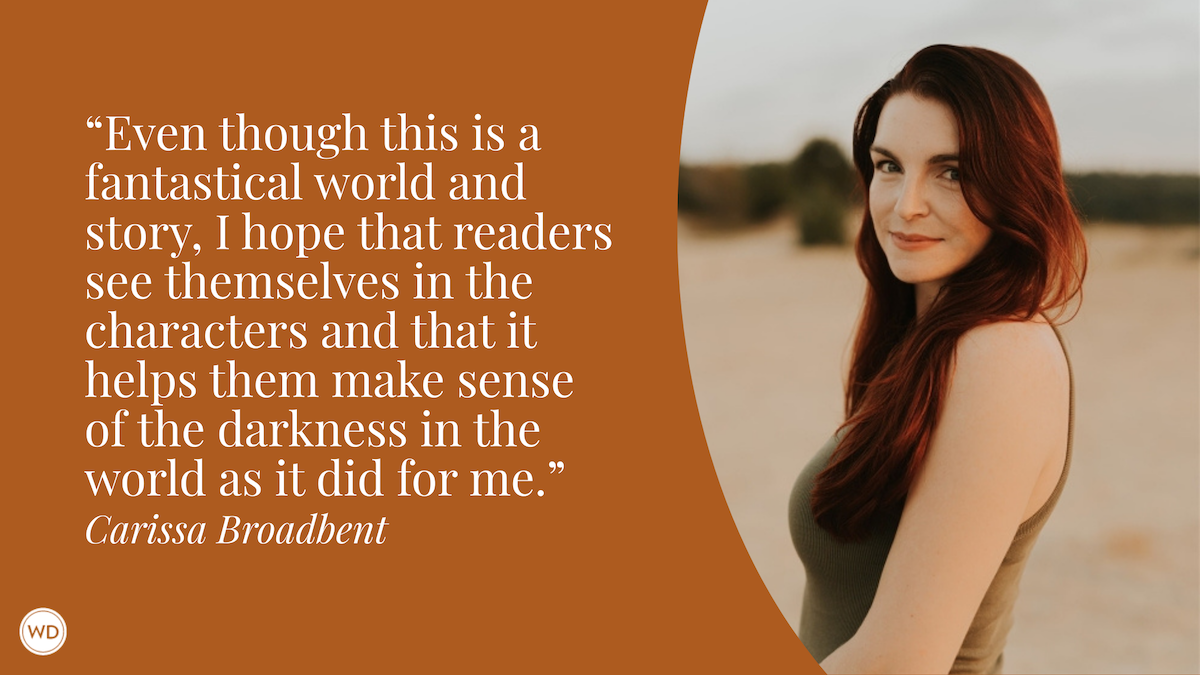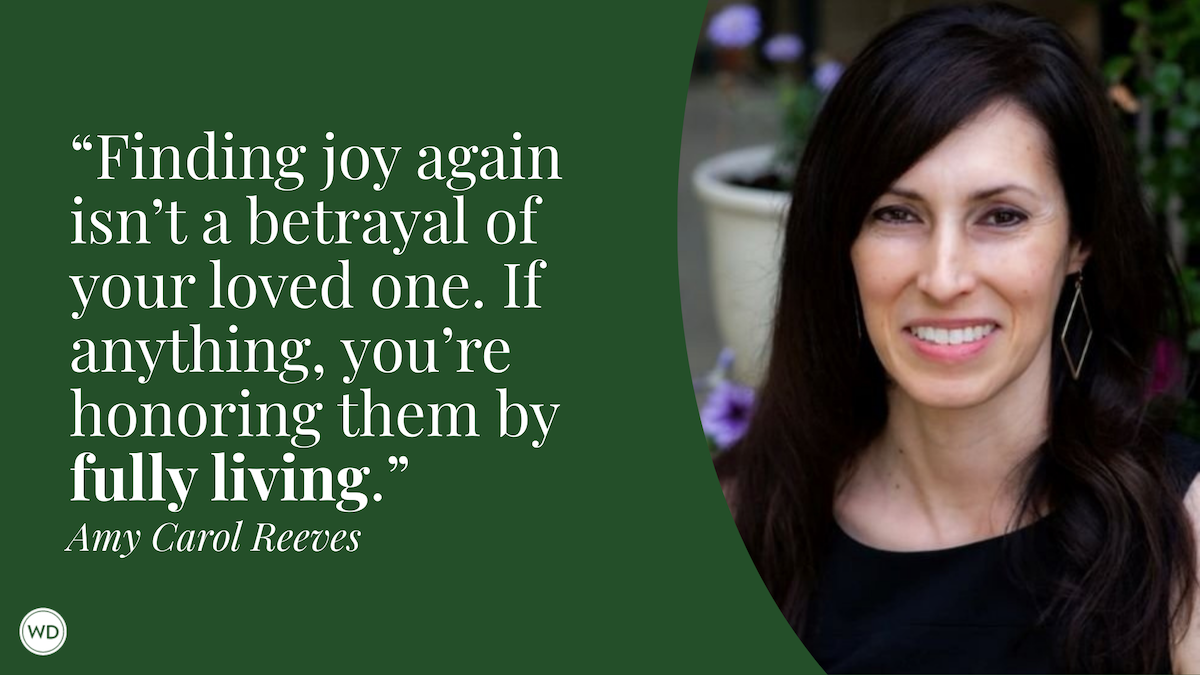How To Write When You’re A Parent
If you’re a parent (or a writer with outside responsibilities), you’ll need to find a way to write in an always-changing, consistently disruptive environment. Here’s how to do that and reach your writing goals.
It’s 10:30 in the morning and my son has finally succumbed to his morning nap. With his head on my chest and his ineffectual arms wrapped around my neck, I feel his body rise and fall with every seamless breath. I move ever-so-slightly, adjusting my body without moving him; a timeless skill every parent finds a way to master. I lift up my arms to lay my hands on my laptop keyboard, determined to finish an article and meet a deadline while my child dreams sweet one year old dreams.
Order a copy of Danielle Campoamor's A Twenty-Something Nothing.
Amazon
[WD uses affiliate links.]
Before I became a mother, I was borderline obsessive about the way I wrote. I had to listen to music and set up a clean area and definitely, under no circumstances, be bothered. I’d create a “writing space” that - I believed - fostered the best creativity and willpower and I was unwavering in its obsessive defense.
But then life happened and pregnancy happened and a child happened. And suddenly, the list I had created in order to obtain the perfect writing environment became impossible to adhere to. No one bothering me? Forget about it. A pristine environment? Try telling that to a child who has learned about toys and the ability to throw them mighty distances. Loud music? Not when the baby is sleeping. No way.
If I was to continue my career and my passion, I had to find a new way to write in an always-changing, consistently disruptive environment. Because unless you have someone paying your bills and a nanny to watch your children and a staff to clean and cook and fold your laundry, life will always get in the way of writing.
Get Over Yourself
Yes, yes, this step can be difficult but is of the utmost importance. We writers like to fancy ourselves artists, entitled to creative and artistic environments that will nurture and foster the genius brewing inside us. We wax nostalgic about the great trailblazers who came before us, taking note of those who stood when they wrote and those who drank (a lot) when they wrote and those who didn’t do a single second of editing when they wrote.
But when there are diapers to be changed and meals to be made and hungry stomachs to be fed and books to be read to inquisitive minds, you can’t have the environment you once envisioned every great writer having. You are not Ernest Hemingway. You are not Charles Bukowski. But you can be so much more, because despite the obligations and responsibilities that fill your day-to-day life, you're still committed to your craft and determined to build your career. Focus on your end goal and the reasonable steps you can take to attain it, and don't worry about fulfilling some romanticized ideal of a writer’s life. [Like this quote? Click here to Tweet and share it!]
Always Write
This doesn't mean to ignore your child as they smear their feces across your hardwood floor. Instead, it means realizing that writing isn't just putting pen to paper or fingertips to keyboard. You’re writing when you're in the shower and you’ve created a first opening paragraph in your mind. You’re writing when you’re stuck in traffic and you’re jotting down a few ideas on a notepad, before they leave your exhausted mind. You're writing when you get out of bed in the middle of the night to write that perfect sentence you just conjured, only to slink back into bed again. You’re writing when you're reading.
So, don’t beat yourself up if you haven’t written an article or a chapter or an essay, start to finish. That will come. If you’re constantly creating - whether it’s in your mind or on a sticky note at the doctor’s office - you’re doing your job.
Allow Writing To Become Inconvenient
We all know the words don't always come when you want them to and the opportunity to sit down and write endlessly doesn't always present itself, and that’s okay. Every job has parts you hate, including (and especially) the job of a writer.
Instead of setting time aside every day to sit down in front of your computer and write, allow writing to become an utter inconvenience. Instead of getting frustrated when the time you’ve set aside to write produces nothing, use that time of nonexistent inspiration to play with your child or complete that list of chores. And when inspiration does hit - especially if you're at home - get to your computer and start writing. You'll be spending time with your child when writing isn't there, and you'll be writing when it is. This way, the time you take with your son or daughter is time void of frustration or regret or resentment, and the time you spend writing is productive and creative and fulfilling.
Ask For Help
This is, perhaps, the most difficult task. As parents, we like to prove that we can reproduce and maintain a boisterous career while simultaneously molding a young mind and raising a productive member of society. We like to check off our daily to-dos and marvel at our ability to multitask and accomplish and create. However, that doesn't always happen. And when you're feeling exhausted and overwhelmed and one toddler-tantrum away from losing your ever-loving mind, ask for help.
If you have a partner, implore them to watch the kid for a few hours while you write or read or find your center. If you have a babysitter, give them a call and go out into the world to find inspiration. If you have family - and if they live close - drop the tyke off and take a day to yourself, so you can wash the parent off and focus on being a writer. This doesn't mean you're a bad mother or father. This doesn't mean you're failing and you can't have a writing career and a child simultaneously. It just means you're a normal human being.
Like with almost everything in your life, parenting will shift your perception of writing and the process you use to do it. Allow yourself the freedom to change your writing habits so that they adapt to your new lifestyle, and so your new lifestyle can adapt to them.
Change is good. Change is cathartic. Change, is inspirational.
Because, let's face it, there isn’t a better way to write than when you have your child laying on your chest; their ineffectual arms wrapped around your neck and their body rising and falling with every breath and click of your keyboard.
Danielle Campoamor is a staff writer for Bustle's Romper the author of A Twenty-Something Nothing. She's also a full-time freelance writer and mother to a wide-eyed one year old. She's been published in places like The Seattle Times, The Huffington Post, xoJane, Slate, Bustle, BuzzFeed Ideas and more. You can follow her on Twitter and Facebook.









